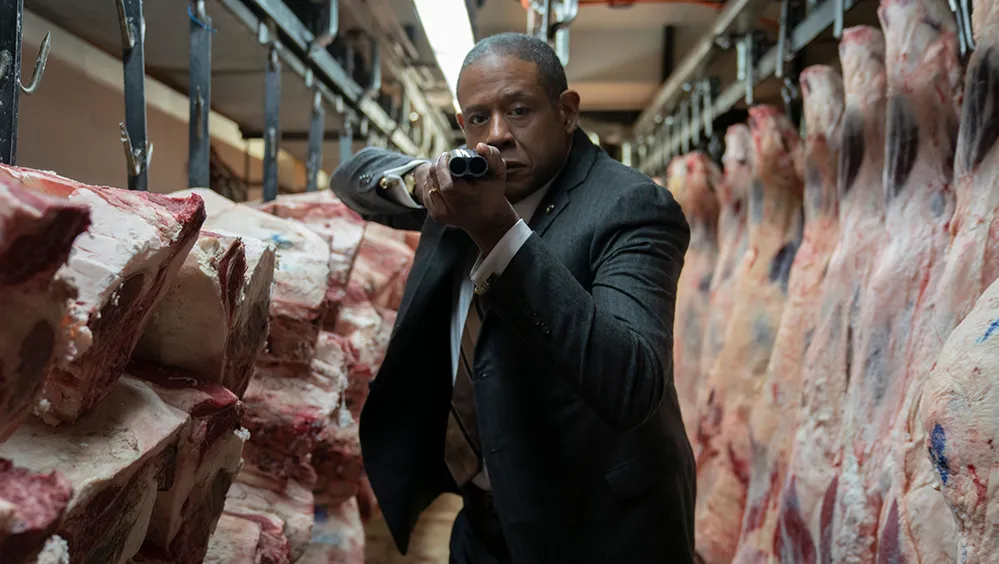In a recent interview with The Hollywood Reporter, Chris Brancato, co-creator and showrunner of “Godfather of Harlem“, opened up about the creative vision, historical influence, and political relevance behind the hit MGM+ series, which is now in its fourth season. Here’s a recap of the biggest takeaways:
Though Brancato and the late co-creator Paul Eckstein never set out to make a political show, “Godfather of Harlem” has become a powerful reflection of America’s ongoing struggles with race, power, and justice—mirroring today’s turbulent climate through the lens of 1960s Harlem. The show follows gangster Ellsworth “Bumpy” Johnson (Forest Whitaker) during a decade marked by civil unrest, organized crime, and revolutionary Black political movements.
“Godfather of Harlem”: A Bold Commentary
“We are not doing a school lesson here; this is a fun TV show to watch,” Brancato said. “But for me, the civil rights aspect of it always put meat on the bone.” He explained that placing the story in the past allows for bold commentary on today’s political divide without being overtly confrontational: “If you do a show that’s set today, and you try to take on these issues, you are going to get one half of the country screaming that you are pushing a woke agenda… we tell a story in the past, and that gives us a little cover.”
“Godfather of Harlem” Season 4
Season 4 delves into complex themes such as gentrification, racism in labor unions, corporal punishment in schools with predominantly Black students, and the rise of the New York chapter of the Black Panther Party—including Afeni Shakur, mother of legendary rapper Tupac Shakur. “Not a lot is known about the New York Panthers,” Brancato said, noting that including Afeni was a way to “tip the hat to this icon of popular music: Tupac.” While dramatized, the series stays rooted in emotional truths and real struggles.
Brancato emphasized that while the show draws from history, it’s infused with a modern perspective—most notably through its contemporary hip-hop soundtrack. Despite some fan pushback, he defends the creative choice: “We did it to make you understand there is a connection… this is historical fiction. It’s the lie that tells the truth.” The music serves as a cultural bridge that links the civil rights battles of the past to the activism of present-day artists.
Another cornerstone of the show is family. In Season 4, both Bumpy and his nemesis Vincent “Chin” Gigante (Vincent D’Onofrio) are caught between their criminal worlds and their daughters, who are claiming space within their fathers’ spheres of influence—Elise as a Black Panther and Stella in the Genovese crime family. “These are two really important women roles in this season,” Brancato said. “And Bumpy is caught right between the two, and so is Chin.”
This dynamic adds emotional depth to the series. “Family, friends, faith—all of these things we share as human beings. The need to be loved, the need to be heard—it doesn’t matter the color of your skin.”
“Godfather of Harlem”: Spinoff On The Way?
Brancato also hinted at expanding the universe further—possibly telling the story of another Harlem figure as infamous as Bumpy. Whether or not that happens, his storytelling goal remains clear: to take two unlikely elements—like civil rights and organized crime—and show how they’re intertwined. “Oftentimes, it’s by colliding two things together that at first don’t seem like they should be together, but then you realize, ‘Oh yeah, these two things are part of the same thing.’”
Ultimately, “Godfather of Harlem” isn’t just about gangsters—it’s about power, identity, resistance, and the enduring fight to claim a place in America’s narrative. And that, Brancato says, is why it still resonates.

